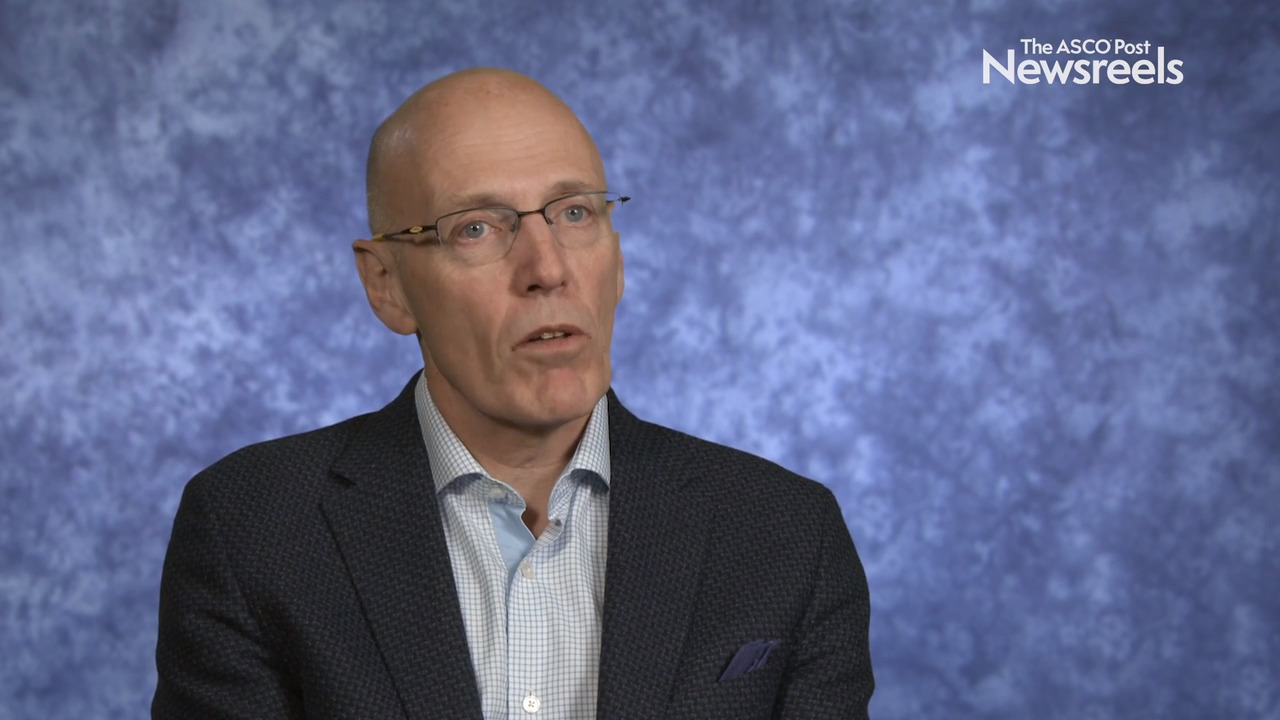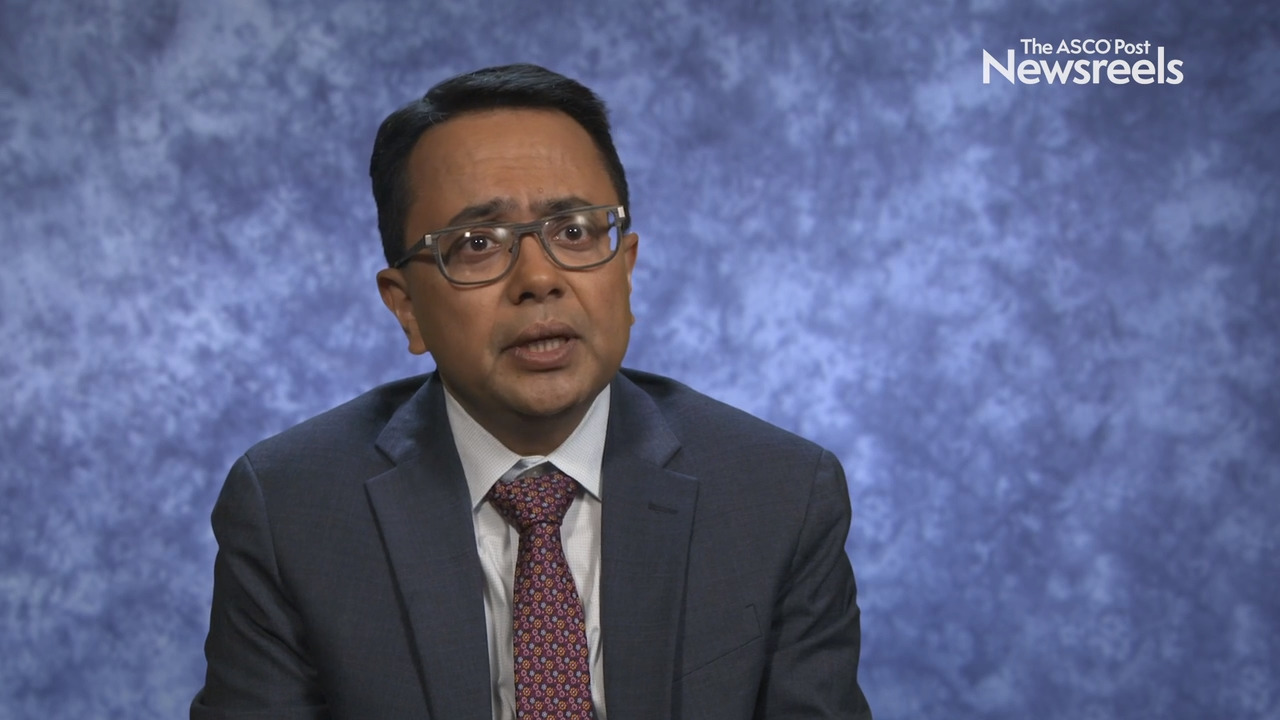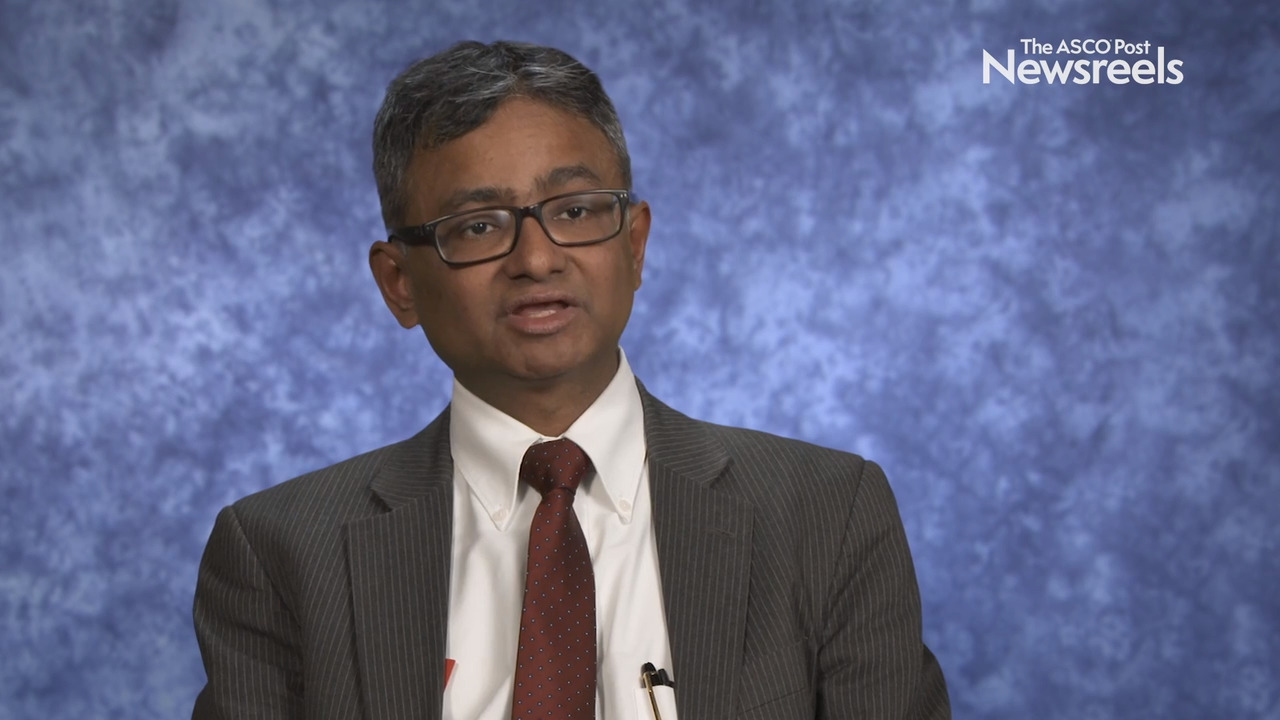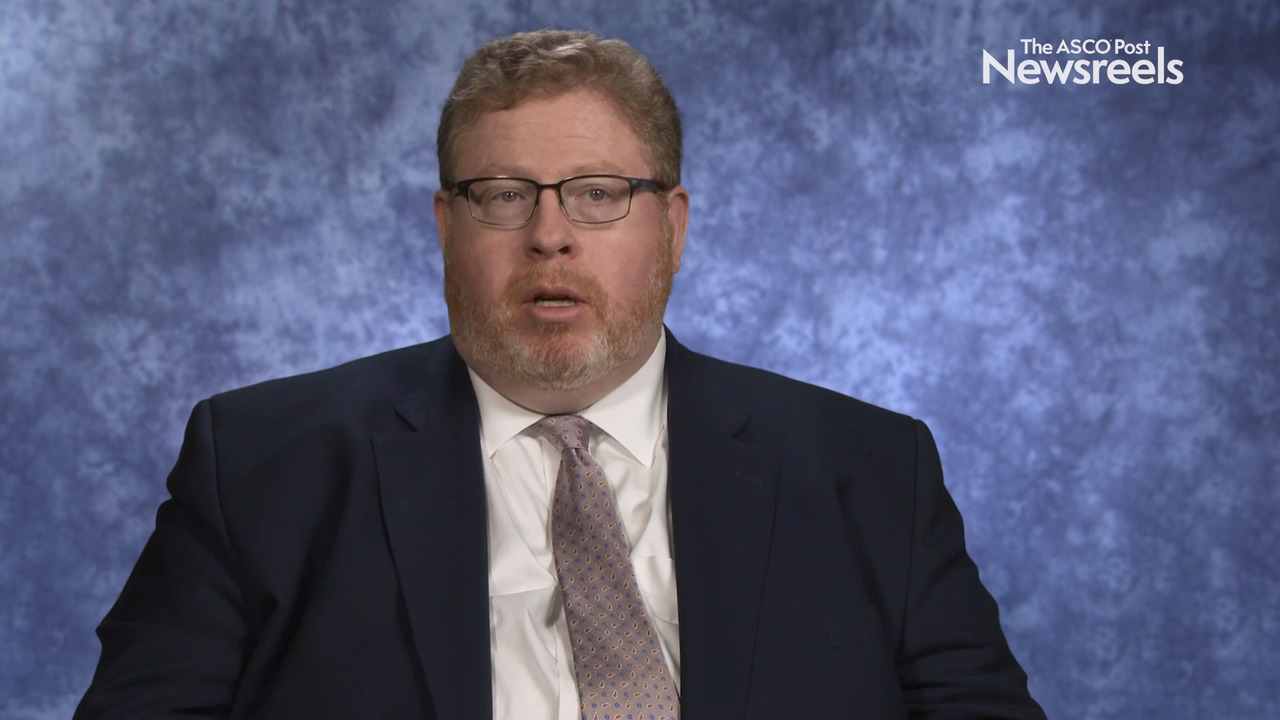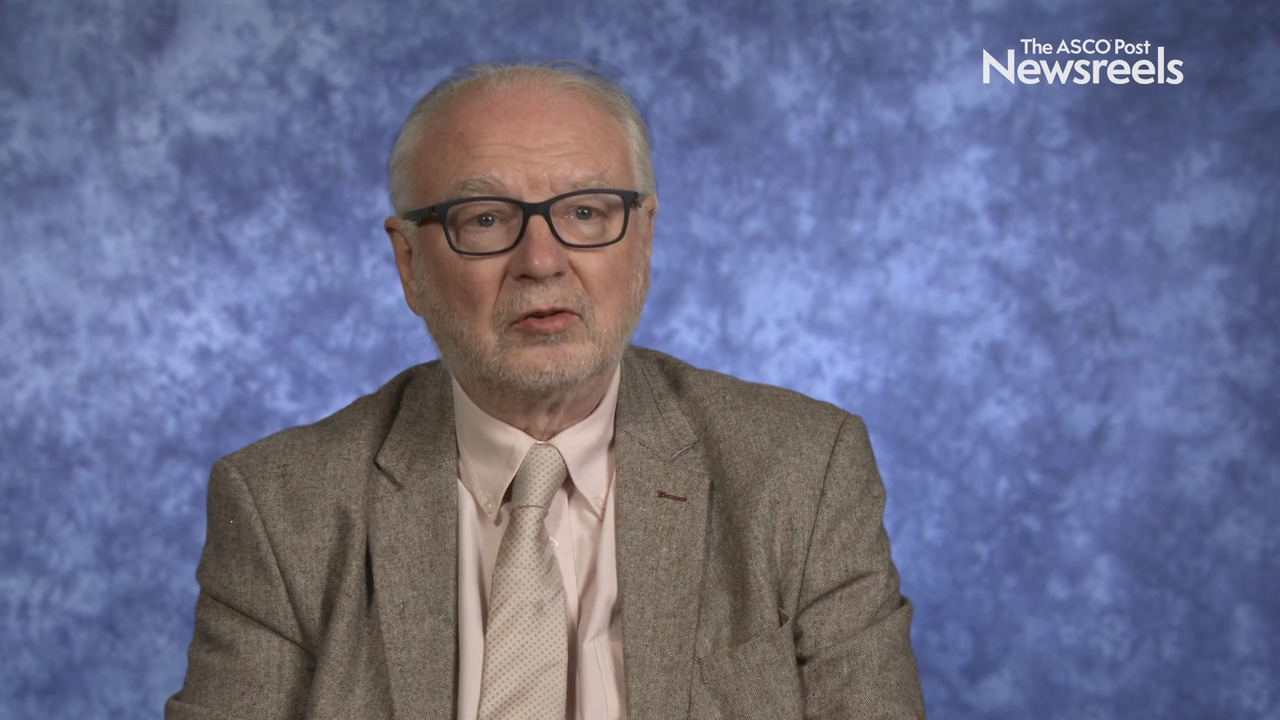Toni K. Choueiri, MD, on an HIF2A Inhibitor for Advanced Clear Cell RCC
2020 Genitourinary Cancers Symposium
Toni K. Choueiri, MD, of Dana-Farber Cancer Institute, discusses findings from a phase I/II trial that found MK-6482 was well tolerated and demonstrated activity in heavily pretreated patients with clear cell renal cell carcinoma (Abstract 611).
The ASCO Post Staff
Nicholas D. James, PhD, MBBS, of The Institute of Cancer Research in London, discusses the health economics of adding abiraterone to first-line, long-term hormone therapy in prostate cancer, and what it means for long-term survival, quality-adjusted survival, and cost-effectiveness (Abstract 204).
The ASCO Post Staff
Neeraj Agarwal, MD, of the University of Utah Huntsman Cancer Institute, discusses trial findings that showed the combination of cabozantinib and atezolizumab had a tolerable safety profile and showed activity in men with metastatic disease. Further evaluation of cabozantinib and atezolizumab is planned in a phase III trial (Abstract 82).
The ASCO Post Staff
Syed A. Hussain, MD, of the University of Sheffield, discusses phase II findings comparing nintedanib or placebo in combination with gemcitabine and cisplatin in locally advanced muscle-invasive bladder cancer. The data showed that adding nintedanib was safe and well tolerated, with a significant improvement in progression-free and overall survival at 1 and 2 years (Abstract 438).
The ASCO Post Staff
Jonathan E. Rosenberg, MD, of Memorial Sloan Kettering Cancer Center, discusses study results which showed that, in first-line cisplatin-ineligible patients with metastatic urothelial carcinoma, enfortumab vedotin/pembrolizumab demonstrated activity and durability, with a manageable safety profile (Abstract 441).
The ASCO Post Staff
David P. Dearnaley, MD, of The Institute of Cancer Research and Royal Marsden NHS Foundation Trust, discusses 8-year outcomes of the phase III CHHiP trial, which showed that modest hypofractionation is noninferior to conventional fractionation in localized prostate cancer, with no increase in side effects. Disease control was also reported in patients older than age 75 (Abstract 325).
